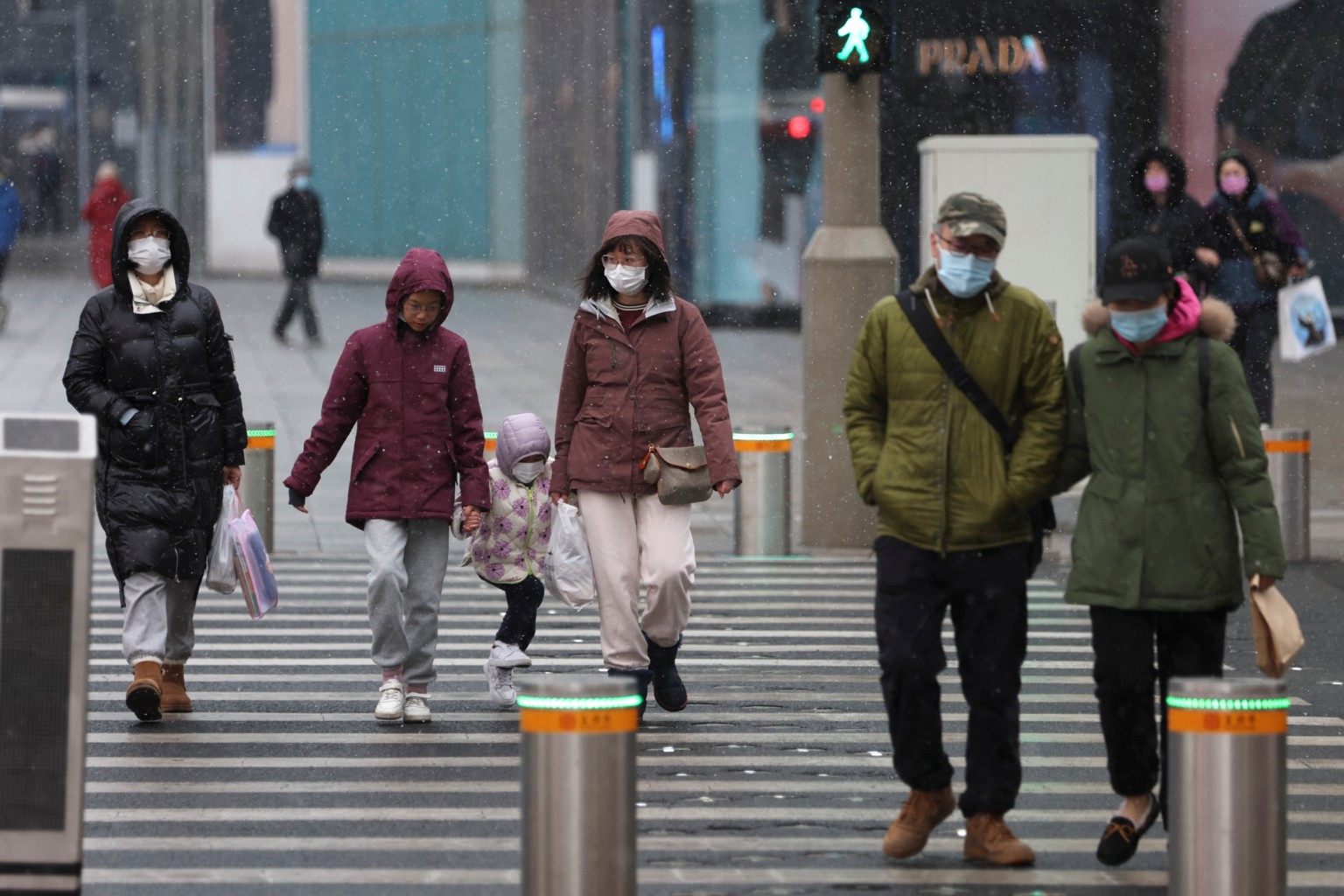China to stick with zero-Covid strategy, President Xi Jinping says
Sign up now: Get insights on Asia's fast-moving developments

People walk past a street amid snowfall, following the Covid-19 outbreak in Beijing, China, on March 17, 2022.
PHOTO: REUTERS
Follow topic:
BEIJING - Chinese President Xi Jinping on Thursday (March 17) said China will stick to its “zero Covid-19” policy, two days after the National Health Commission (NHC) released new guidelines easing its control measures.
Speaking at a meeting of the country’s top leaders, Mr Xi said China should “continue to put people and life at the forefront, stick with scientific accuracy and dynamic-zero, and curb the spread of the epidemic as soon as possible”, according to state broadcaster CCTV.
Late on Tuesday night, the NHC had quietly uploaded a new document on its website. Titled the Novel Coronavirus Diagnosis And Treatment Plan, it was the ninth revision to a document setting out Covid-19 policy for the country of 1.4 billion.
Updates to the guidelines have often slipped under the radar, except during the early days of the pandemic when the situation was continually evolving.
But the latest version contained a significant update: Patients with mild symptoms no longer have to be hospitalised but can instead go to centralised quarantine facilities. This is significant for a number of reasons – the move eases pressure on the healthcare system; it also means that the country is bracing itself for more but milder infections.
China is facing its worst outbreak since the start of the pandemic, with 2,627 new infections recorded yesterday. Nearly half of that number, or 1,310, were asymptomatic.
This is typical of the highly transmissible but less severe Omicron variant of the coronavirus, blamed for most of the infections in the current surge.
Patients will now have to be hospitalised only if their condition takes a turn for the worse. Previously, all patients who tested positive had to be hospitalised, putting a huge strain on the healthcare system.
Those who have recovered will now need to do only seven days of health monitoring at home rather than a hard 14-day quarantine as previously mandated.
“It not only allows the infected person to return to normal life as soon as possible, reducing the economic burden during the isolation period, but also saves on isolation room space and other resources,” said virologist Zhang Wenhong in an interview with Shanghai-based media outlet The Paper.
“This will further improve the ability... to respond to the epidemic without causing a run on isolation resources.”
The authorities have also allowed the sale of antigen rapid test kits, which can be used in addition to the labour-intensive nucleic acid testing regime.
China had previously insisted that all tests be conducted only at government-approved laboratories and hospitals to keep tabs on all potential positive infections. But with the approved sale of self-test kits, those who have to undergo regular testing, including incoming travellers, can now test themselves, freeing up manpower. The results will need to be reported to a local authority.
The change has been framed by top leaders as a “reform” of the country’s virus response measures.
During a meeting of the Politburo Standing Committee yesterday, Mr Xi said the country’s Covid-19 measures were in a “leading position” globally, but called for measures to be further refined to minimise disruption to daily lives and the economy.
“Persistence is victory,” he told the seven-member committee.
While China’s playbook of flash lockdowns, aggressive testing and contact tracing has been largely successful, the recent Omicron wave is stress-testing the healthcare system like never before. People are also starting to tire of the measures, which have translated into a sluggish economic recovery, especially in terms of consumer spending.
But state media has been quick to debunk the notion that the relaxation in China’s zero-Covid-19 strategy points to the health authorities giving up on their battle to stem the spread of the virus, and “lying flat” like other countries that have chosen to coexist with Covid-19.
“If tens of millions of people are infected, the Chinese people cannot endure it, the Chinese healthcare system cannot carry such a burden, and there is no way to talk about normal economic and social life,” said a Global Times editorial on Wednesday.
State media said that members of the Politburo during yesterday’s meeting emphasised that border control measures would remain intact.

